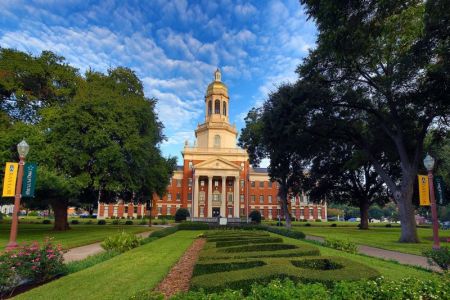Christian colleges can receive Title IX funds and uphold religious beliefs on LGBT issues, judge rules

A federal court has ruled that Christian colleges and universities with traditional views on sexuality and marriage can continue to receive funding through Title IX, rejecting LGBT students' efforts to strike down a religious exemption to federal discrimination law.
In a ruling Thursday, U.S. District Judge Ann Aiken in Oregon dismissed the case filed by a group of LGBT Christian college students and former students who sued the U.S. Department of Education in 2021 for providing religious exemption to Title IX discrimination laws to Christian higher education institutions.
Aiken, a Clinton appointee, concluded that plaintiffs failed to show that the original religious exemption granted by Congress decades ago for Title IX has a discriminatory purpose.
"Plaintiffs have submitted no allegations of discriminatory motivation on the part of those enacting the religious exemption. To the contrary, Plaintiffs argue that when Congress enacted Title IX, protections for — or discrimination against sexual and gender minorities — were 'of no concern,'" wrote Aiken.
"Plaintiffs provide no evidence and supply no allegations involving the above-listed factors for the Court to consider and evaluate whether Congress was motivated in part by a discriminatory purpose when it enacted the religious exemption."
Title IX of the Civil Rights Act forbids sex-based discrimination in education, but colleges upholding traditional definitions for marriage and sexuality can request exemptions that allow them to adhere to scriptural beliefs on matters of sexuality.
The court rejected the plaintiff's claim that religious exemptions violate the First Amendment of the Constitution, noting that "the Supreme Court has interpreted it to allow, and sometimes require, the accommodation of religious practices."
"Plaintiffs' allegations do not plausibly demonstrate how the relief they seek in enforcing Title IX in religious schools is not the very excessive entanglement Plaintiffs argue is impermissible," continued the opinion.
The Alliance Defending Freedom, the legal nonprofit representing three Christian higher education institutions, celebrated the ruling.
"Title IX, which applies to schools receiving federal financial assistance, explicitly protects the freedom of religious schools to live out their deeply and sincerely held convictions," said ADF Senior Counsel David Cortman in a statement.
"A group of activists asked the court to strip that protection away from schools that educate the next generation and advance the common good. The court correctly concluded that Title IX's religious liberty exemption doesn't violate any of the plaintiffs' claimed rights."
In March 2021, an advocacy organization called Religious Exemption Accountability Project filed the lawsuit on behalf of 33 LGBT former and current students who believe they were discriminated against at 25 religious colleges.
The plaintiffs claim they unexperienced mistreatment and harassment due to their LGBT identities.
Elizabeth Hunter, the lead plaintiff in the case, was a former student at Bob Jones University in South Carolina who claimed that school officials harassed her because of her sexual orientation. She took issue with the student handbook detailing behavioral rules prohibiting same-sex romantic relationships, saying the school created a "scary, harsh environment for me."
Other schools attended by plaintiffs in the lawsuit include Liberty University, Baylor University, Oral Roberts University, Azusa Pacific University, Regent University School of Law, George Fox University, Cedarville University, and Brigham Young University, among others.
REAP Director Paul Southwick stated in 2021 that the Title IX religious exemption was an "unconstitutional" government endorsement of religion.
"Our lawsuit asks a federal court to declare that the religious exemption to Title IX, as applied to a class of LGBTQ+ students attending the more than 200 religiously affiliated colleges in the United States that openly discriminate against them, using taxpayer dollars, is unconstitutional," stated Southwick.
"It is a violation of the First Amendment's prohibition on the establishment of religion and a violation of the Fifth and Fourteenth Amendments' guarantee of Equal Protection under the law for LGBTQ+ Americans."
In May 2021, the Council for Christian Colleges & Universities, an advocacy organization claiming about 140 member schools across the U.S., filed a motion to intervene in the case and called the lawsuit "frivolous." In October 2021, the CCCU's request to intervene was granted.
"Faith-based higher education has always been an essential element of the diversity of higher education in the United States — many of the first colleges and universities in the country were religious — and it is crucial that students continue to be given the opportunity to choose and access the college of their choice in a diverse educational landscape," the CCCU argued.





















